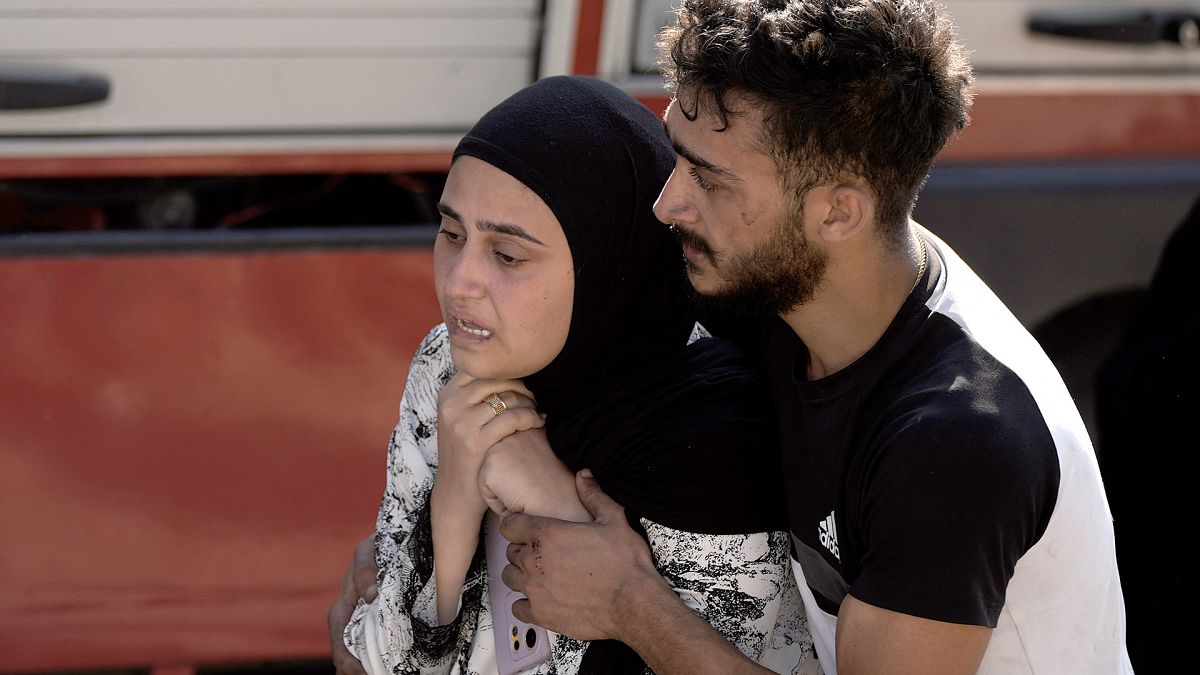Israel’s military chief has announced preparations for a potential ground operation in Lebanon as Hezbollah continues to launch rockets into Israel. This escalation in tensions resulted in the tragic deaths of 23 Syrian refugees after an Israeli airstrike destroyed a building housing workers in the village of Younine. The strike also left eight individuals wounded, further exacerbating an already volatile situation. In response, the IDF targeted infrastructure on the Lebanon-Syria border that was allegedly being used to transfer weapons, although the full extent of the strike and any resulting casualties remain unknown.
Despite international calls for a ceasefire, Israeli Prime Minister Benjamin Netanyahu’s office rejected proposals for an immediate truce. Instead, the office emphasized that the Israeli military would intensify strikes on Hezbollah targets in Lebanon. Acting Prime Minister Israel Katz reiterated this stance, stating that there would be no halt to the fighting in the north until victory is achieved and displaced Israeli citizens can safely return to their homes. This defiance against calls for de-escalation highlights the gravity of the conflict between Israel and Hezbollah, with devastating consequences for both sides.
The ongoing hostilities have led to a significant displacement of civilians, with the United Nations reporting over 90,000 people forced to flee their homes due to Israeli airstrikes on Lebanon. This adds to the 200,000 individuals who have already been displaced in Lebanon since Hezbollah’s involvement in supporting Hamas during the Israel-Hamas war. The mounting humanitarian crisis underscores the urgent need for a peaceful resolution to the conflict, as innocent civilians bear the brunt of the violence.
As the situation continues to escalate, the possibility of a ground operation in Lebanon looms large, raising concerns about further casualties and destruction in the region. The IDF’s actions, including targeting alleged weapons infrastructure, indicate a strategic shift towards more aggressive military tactics. However, the lack of clarity surrounding the extent of the strike and any resulting casualties underscores the challenges of assessing the impact of these operations in real-time.
Despite calls for a ceasefire from the international community, Israeli leadership remains steadfast in their commitment to continued military action against Hezbollah targets in Lebanon. The rejection of proposed truces and the pledge to fight with full force until victory highlight the entrenched positions of both sides in the conflict. With no immediate end in sight to the violence, the toll on civilian populations increases, further underscoring the urgent need for diplomatic efforts to bring about a lasting peace in the region.
In the face of escalating tensions and mounting civilian casualties, the urgency of finding a diplomatic solution to the conflict between Israel and Hezbollah becomes increasingly clear. The displacement of tens of thousands of people and the tragic loss of life demonstrate the devastating impact of continued hostilities in the region. As international calls for a ceasefire go unheeded, the prospects for a peaceful resolution remain uncertain. It is crucial for all parties involved to prioritize dialogue and negotiation to prevent further bloodshed and pave the way for a sustainable peace in the Middle East.











